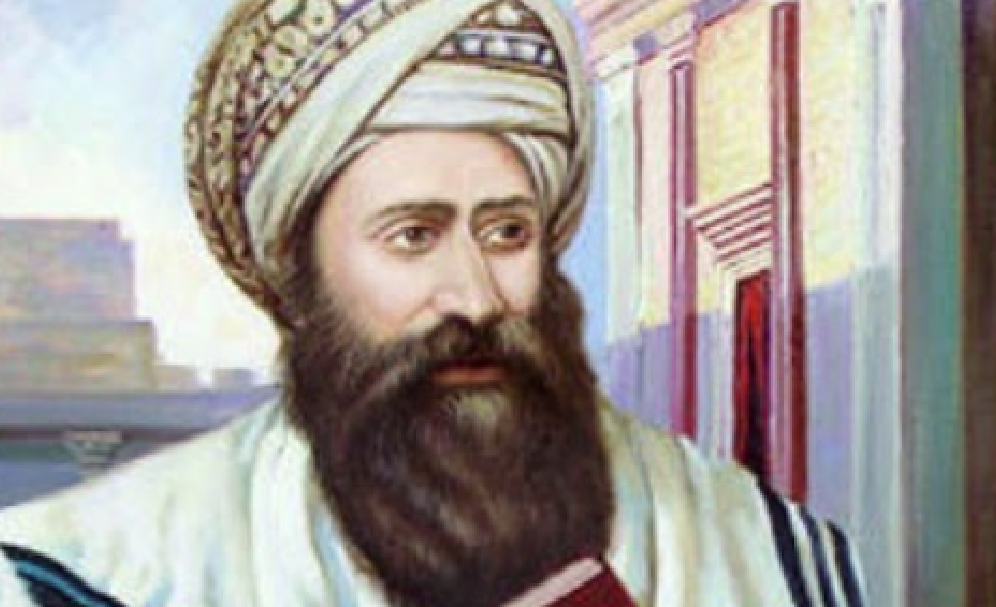
Rabbi Menachem Mendel – The Kotzker Rebbe
Date of Passing: 22-Shevat. Reb Mendel was a new type of chassid. If the Baal Shem Tov embodied chessed (kindness), Reb Mendel represented din (justice)...

(1787 – 1859) Reb Mendel was a new type of chassid. If the Baal Shem Tov embodied chessed (kindness), Reb Mendel represented din (justice). While the Baal Shem sought to reach all the people, Reb Mendel knew that what he sought could only be attained by the elite. The Baal Shem lifted the people up, Reb Mendel rebuked them for their inadequacies and always demanded more.
Reb Mendel attracted a young, brilliant, aspiring youth. He demanded withering self-analysis and disdained mitzvot performed with a whiff of self-interest. He recognized the centrality of the ego, but refused to accept it. He demanded uncompromising truth without self-interest. He cried out, “Give me ten chassidim who will follow me to the desert, eat manna and forsake the decadent world”.
Reb Leibel Eger was entranced by Kotzk, to the despair of his father, Rabbi Shlomo. Upon returning home his father asked what he had learned in Kotzk. Reb Leibel replied: I learned three things, that a man is a man and an angel is an angel; that if a man wants it enough he can be higher than an angel; and that God created the Beginning (Bereishit), just the Beginning, thereafter man must create his world.
Reb Mendel and Reb Mordechai Yosef of Ishbitz had been close friends and disciples of Reb Simcha Bunem of Pshischa. After Reb Bunem’s passing Reb Mendel became Rebbe. However, because of Reb Mendel’s extreme aloofness, the two friends were traveling on a collision course. Finally, on Simchat Torah of 1840 there was an irrevocable split between the two and Reb Mordechai Yosef left with his chassidim to form a new chassidut.
The paradox of Reb Mendel was his awareness of man’s weakness but his non-acquiescence. He once said that if one tried to break the yetzer (evil impulse) he would end up with two yetzers thus conceding the impossibility of overcoming it. Yet, he refused to compromise his aspiration for ultimate truth and pure action.
One of Reb Mendel’s chassidim, Reb Shemaya, lay on his deathbed and was asked by a fellow Kotzker whether the yetzer still bothered him at that moment. “Of course, he replied,” don’t you see him standing at the foot of my bed whispering into my ear, ‘Reb Shemaya say Shma Yisrael in a loud voice and draw out the echad’”. Reb Shemaya continued, “I recognize the thief- he is trying to seduce me to say Shma Yisrael in order that you will say that Reb Shemaya left this world in pure state.
Reb Mendel’s path did not attract a large following. It demanded from human beings the unattainable. Yet, his search and his critique have become part of the spiritual treasure house of Klal Yisrael.
Source: Leaders in the Diaspora
Here are some sayings that have been attributed to the Kotzker Rebbe:
- What kind of G-d would He be if I could understand Him?
- If I am I because I am I, and you are you because you are you—then I am I and you are you. But if I am I because you are you, and you are you because I am I—then I am not I and you are not you.
- Do not be satisfied with the speech of your lips and the thought in your heart, all the promises and good sayings in your mouth, and all the good thoughts in your heart; rather you must arise and do!
- A person must renew himself, and his world with him, each and every day. But one who does not do so, and rather performs his deeds as a mechanical function, does nothing other than the actions of a monkey. Just as this monkey has no personality of his own, but rather copies his own actions and his fellow, so too this person.
- Not all that is thought need be said, not all that is said need be written, not all that is written need be published, and not all that is published need be read.
- People are accustomed to look at the heavens and to wonder what happens there. It would be better if they would look within themselves, to see what happens there.
- Where is Hashem to be found? In every place where He is given entry.
- You don’t love fish. If you loved the fish, you would not have killed it and cooked it on a fire.
- Just as it is the way of an ape to imitate humans, so too, a person, when he has become old, imitates himself, and does what was his manner previously. [In other words, most of us, at some point in life, either consciously or not, become satisfied with who we are and what we’ve become. As such, we cease to strive toward attaining greater spiritual heights. We are content to live out our remaining days as a mere imitation of ourselves!]
- Each person was created in his/her image and only then in God’s image.
- The way of the world is such that parents feel the pain of their children, but the children are oblivious to the suffering of their parents. Likewise, G‑d feels our pain, but we are blind to His misery.
- If you need to hide something—something is wrong.
- The body finds it easier to accept all kinds of suffering than to accept the yoke of Heaven.
- Elijah the Prophet will not enter through the door or even the window. He will come by way of your heart and your mind.
- A great generation can make do with petty leaders. But a lowly generation needs great leaders.
- Not every thought should be said. Not every speech should be written down. And not all writings are fit for print.
- Don’t fool yourself and don’t imitate your fellow.
- A person has two eyes—one to see the greatness of G‑d and the other to see his own smallness.
-
Blaze your own path. You can be sure that it has not been sullied by others.
-
More important than writing is erasing.
Source: Chabad.org












Tell us what you think!
Thank you for your comment!
It will be published after approval by the Editor.